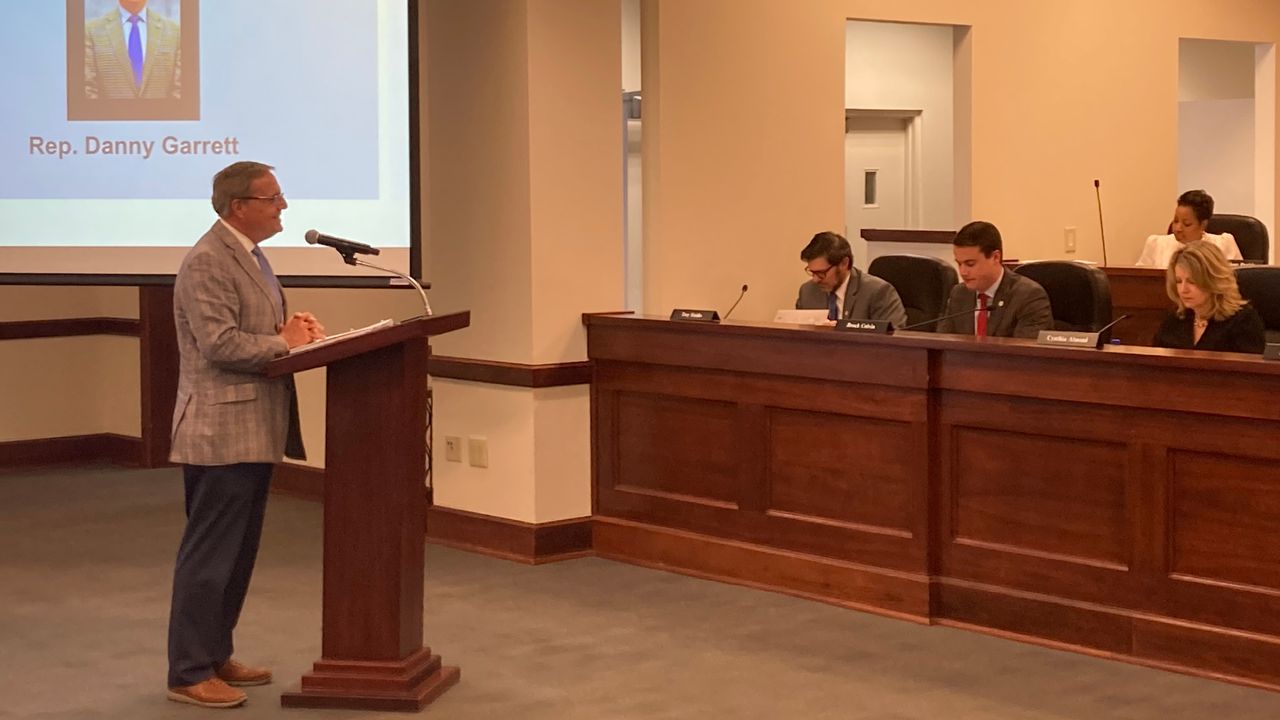Tax incentives to recruit industry advance in Legislature
Four bills Gov. Kay Ivey dubbed the Game Plan, to renew and expand the tax incentives the state uses to recruit industry, won approval today in an Alabama House of Representatives committee.
The bills have broad bipartisan support and are a priority by the governor and legislative leaders. Two of the state’s job recruiting laws, the Alabama Jobs Act and the Growing Alabama Act, are scheduled to expire in July. HB241 would extend those by five years and increase the spending caps.
Rep. Danny Garrett, R-Trussville, chair of the House education budget committee and the sponsor of HB241, said the Jobs Act has been a success, helping to generate $22 billion in investment and 40,000 jobs since it was passed in 2015. But he said an update is needed to keep Alabama competitive.
“Eight years is a long time in the economic development world,” Garrett said. “So many things have changed. Our economy has changed. What other states are doing has changed.”
The Jobs Act provides rebates to companies that have project agreements with the state. The rebates are based on a percentage of the previous year’s payroll.
HB241 would, among other changes, increase the annual spending cap for the Jobs Act from $350 million, adding $25 million per year to reach $475 million in 2027. Garrett said it would clarify that the incentives are calculated based on full-time employees, not part-time or leased employees, and that employees who count in the calculation must be Alabama residents. HB241 would add renewable energy projects to those that qualify for benefits in response to demand for those projects and would expand incentive opportunities for tourism projects, Garrett said.
HB241 would increase the spending cap of the Growing Alabama Act from $20 million to $35 million. The Growing Alabama Act provides tax credits for donations to economic development organizations to help with site development. Garrett said competing states, including Tennessee, Kentucky, and Virginia, are ramping up their investments.
“The problem is that in terms of site development, we’re running low on sites,” Garrett said. “And the surrounding states are investing huge dollars in site development.”
HB257, sponsored by Garrett, is called the Site Evaluation Economic Development Strategy Act, or SEEDS Act, and is also aimed at developing more locations to recruit industry.
HB247, sponsored by House Minority Leader Anthony Daniels, D-Huntsville, would create the Innovating Alabama tax credit program. Alabama taxpayers would be able to claim up to $25 million a year in tax credits for contributions to economic development organizations for investments in technology companies.
The fourth bill in the package, HB240, sponsored by Rep. Cynthia Almond, R-Tuscaloosa, would require the Department of Commerce to post on its website more information about the incentives paid to companies.
Alabama Department of Commerce Secretary Greg Canfield, who has been in that job for 11 years, said the Alabama Jobs Act has provided an effective, sustainable way for the state to attract industry. He said it is important to share more information with the public to show that the program is working.
“We live in a time where there’s a lot of questions, a lot of misinformation about how incentives are performing,” Canfield told the committee. “And this is about trust. This bill is really about trust and providing information to the public, to the taxpayer, so that they can see what offers we’re making and what agreements we’ve entered into.”
Canfield said Alabama will join a trend of providing more information about incentives.
“There are a number of other states who today are providing this level of information,” Canfield said. “Not every state. But the number of states doing this is growing.”
The committee approved all four bills in the Game Plan without opposition. Garrett said they would be considered by the House on Thursday. Game Plan bills are also moving in the Senate.
